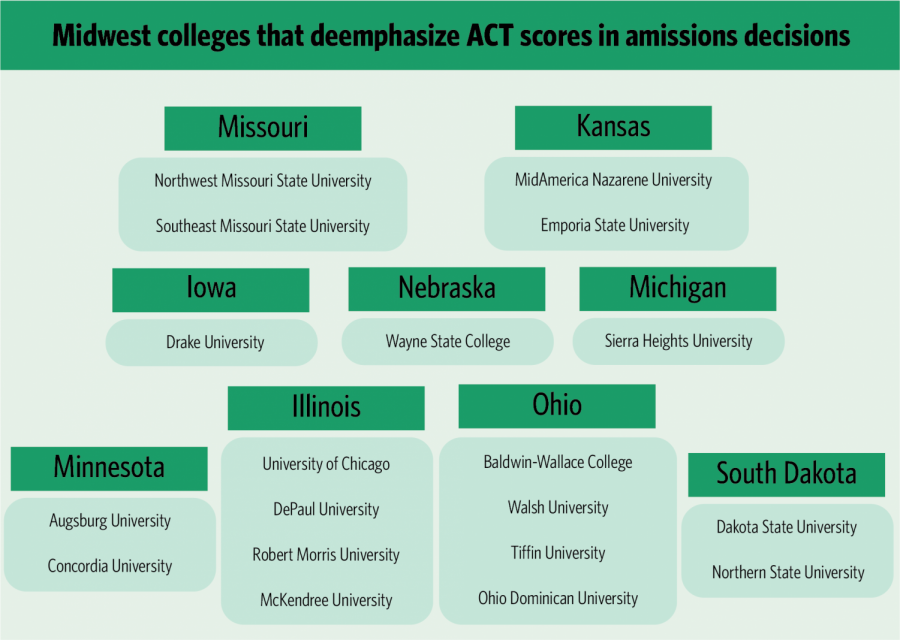University stands firm in standardized testing requirements
Source: National Center for Fair and Open Testing
Sep 13, 2018
As more universities opt for making standardized test results optional to reach more under-resourced students, the University has no plans to join the trend, but it hopes to use its new tuition waiver to reach lower-income students.
The University of Chicago recently announced it would not require domestic undergraduate applicants to submit standardized test scores. According to a press release from the university, the decision was made to give more representation to under-resourced students.
Andrew Borst, director of undergraduate admissions, said Illinois Commitment may give an indication of what demographics of students are not represented at Illinois.
Effective fall 2019, Illinois Commitment will give guaranteed tuition and fee waivers to in-state students with household incomes below $61,000.
“Lots of people think the major sorting mechanism that happens within colleges is based off of just the ACT and GPA, but who gets admitted is not the final decision of who actually enrolls. The financial component is still a big component,” Borst said.
Get The Daily Illini in your inbox!
At this time, Borst said faculty members have not had discussions about using test optional pathways.
“The admissions offices at the public universities are not the ones that are dictating the driving policy. It is our faculty, and our faculty are very busy people,” Borst said. “They need to have time to take up the issue of who we should admit and how we should consider students for admission.”
For test-optional proponents, like Eboni Zamani-Gallaher, director of the Office of Community College Research and Leadership, the playing field cannot be leveled as long as colleges rely on test scores to evaluate student acceptance.
“Test scores cannot account for resourcefulness, grit, creativity, civility and so many other attributes that are value added and provide students with navigational capital to matriculate to completion,” Zamani-Gallaher said.
Borst said certain factors play into how well students score on standardized tests, including socioeconomic status, academic ability and the ability to hire private tutors.
Gillian Lange, freshman in LAS, said she was unable to get the same amount of preparation for the SAT as her peers because she needed to work a part-time job.
“Although there was a lot of preparation, for me personally, I felt like when the day came it was just, ‘Oh boy, here we go.’ This is going to be a rodeo,” Lange said.
Lange said it was harder for her to use her school’s free SAT preparation classes because the classes her school offered conflicted with the days she worked.
She said she thought the students who were able to attend the sessions gained an advantage on the test.
Zamani-Gallaher said the University of Chicago’s decision to go test-optional is nothing new to the higher-education community, and many institutions in the last decade have re-examined standardized tests as essential criteria for admission.
“Institutions of higher learning should take notice and consider what action steps they can take to increase access, advance equity and foster greater inclusion in postsecondary settings,” Zamani-Gallaher said.






